The preparations for a Polish Easter are impressive: hours of cooking, something like 300,000 square inches of cleaning (floors, walls, doors, cabinets, etc.), dozens of eggs for painting, hundreds of baskets for blessing.
There are some greater pleasures among all these, though. And even in the drudgery, one can find some kind of meaning.
Though my mother would faint to read it, there is something inherently satisfying about cleaning. Though it’s only a temporary effect — for dirt holds sway in our world — it’s somehow an apt metaphor of life, taming the chaos and finding beauty under ugliness.
It’s not as difficult to find meaning in cooking as in cleaning, nor is it as difficult to find pleasure. As Cooking is tiring but rewarding. As Tiana’s father in The Princess and the Frog says,
You know the thing about good food? It brings folks together from all walks of life. It warms them right up and it puts little smiles on their faces.
Cooking is inherently a social activity because food is social.
And of course it’s a pleasure to paint eggs; it’s even more a pleasure to watch your daughter paint.
The yearly painting serves as a metric of development: the designs become more intricate and more precise. With her artistic tendencies, she’ll soon be creating eggs that put mine to shame.
The blessing, too, is a blessing. It’s an imported tradition, with the parish priest, Father Theo — himself a transplant from Columbia — pressed into service several years ago, not knowing the tradition. Each year, Fr. Theo has become more involved, more enthusiastic.
The first year, he breezed in, not knowing the significance of the tradition, and offered a quick blessing for the handful of Poles who were there. This year, there were songs, prayers, and even jokes — Fr. Theo can’t go for awfully long without smiling.
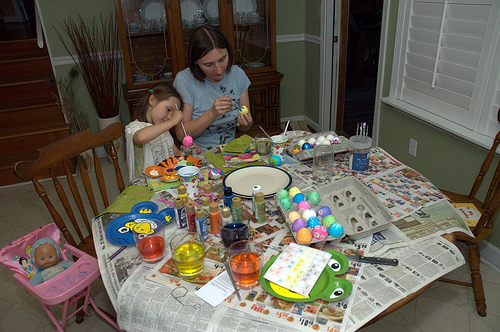
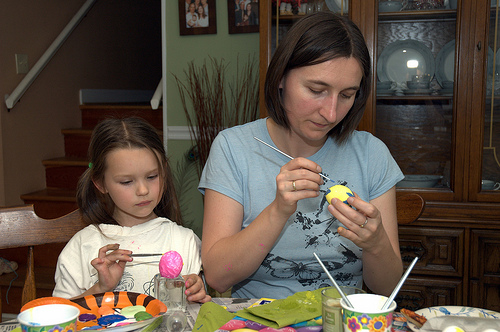
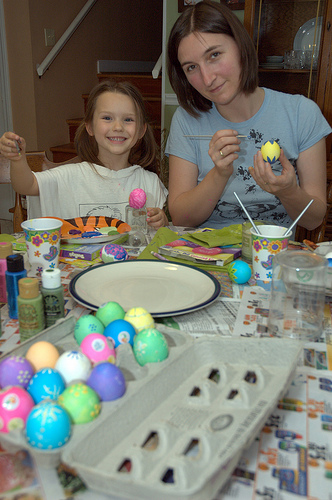
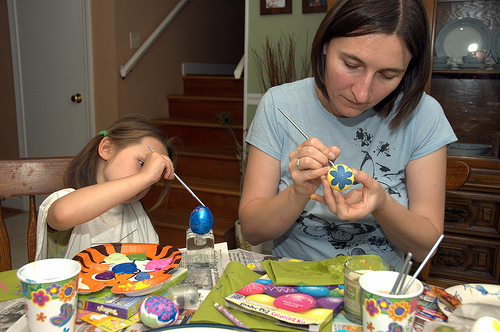
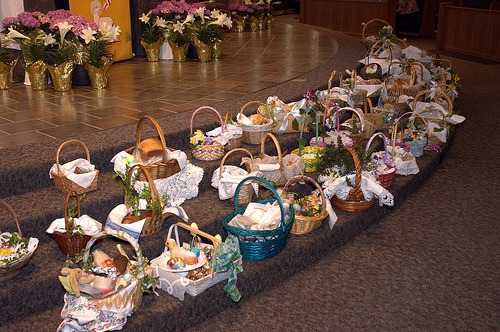
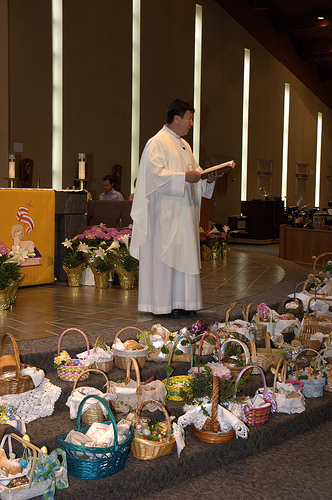
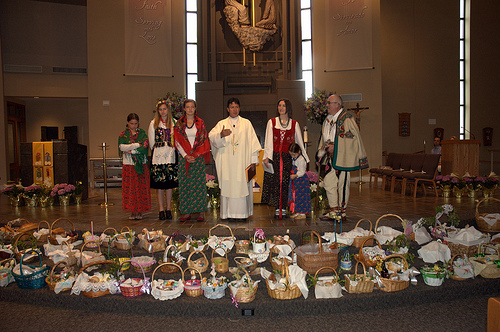
0 Comments